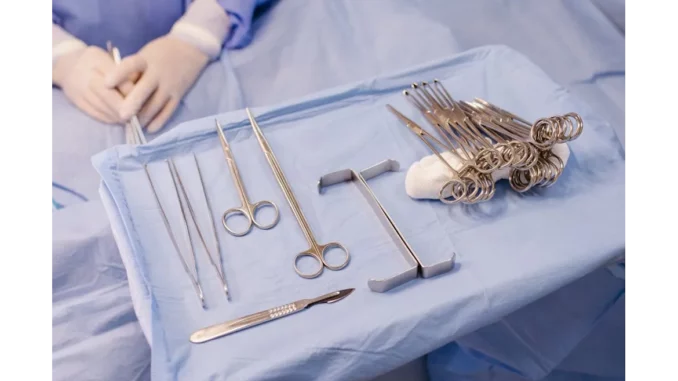
In the ever-evolving landscape of healthcare, technological advancements are continually pushing the boundaries of what is achievable. A recent milestone at the Atlantic Health System’s Morristown Medical Center in New Jersey exemplifies this progression. The centre has conducted the world’s first robotic-arm assisted spine surgery using the Mako Spine System, developed by Stryker, a prominent leader in medical technology. This pioneering development not only signifies a significant leap in spinal surgery but also underscores the transformative strides being made in the arena of medical robotics.
The groundbreaking procedure was performed by Dr. Jason E. Lowenstein, the Director of Scoliosis and Spinal Deformity at Morristown Medical Center. Currently in its Limited Market Release phase, the Mako Spine System incorporates Spine Guidance 5 Software (SG5), offering surgeons enhanced capabilities such as intraoperative CT scans and haptic guidance. These advanced features allow for a bespoke surgical experience, enhancing precision and flexibility during operations. Dr. Lowenstein has expressed immense pride in leading the team at Morristown Medical Center to introduce this innovative technology to patients, emphasising its potential to significantly improve the lives of those afflicted with debilitating spinal disorders and chronic pain. This enthusiasm is shared by James D. Wittig, MD, Chair of the Department of Orthopedic Surgery at the centre, who reiterates the institution’s commitment to advancing surgical planning and accuracy to achieve superior patient outcomes.
Morristown Medical Center has a storied history with robotic-assisted surgeries, having previously integrated Mako robotic-arm technology for Total Knee, Partial Knee, and Total Hip procedures. This latest advancement in spine surgery further attests to the centre’s dedication to harnessing cutting-edge technological innovations to elevate patient care. The introduction of the Mako Spine System represents a substantial leap forward in spinal surgery, addressing the inherent risks and complexities associated with traditional methods, such as potential damage to surrounding tissues and nerves. Robotic assistance aims to mitigate these risks by providing surgeons with enhanced control and accuracy. The system’s haptic feedback ensures adherence to the pre-defined surgical plan, minimising human error and boosting overall surgical outcomes.
A notable feature of the Mako Spine System is its intraoperative CT scan capability, offering real-time imaging that provides surgeons with a comprehensive view of the patient’s anatomy during the procedure. This is particularly beneficial in intricate cases where precise navigation is paramount. The ability to adjust the surgical plan intraoperatively further enhances the system’s adaptability, empowering surgeons to face unexpected challenges with increased assurance. The adoption of the Mako Spine System at Morristown Medical Center reflects a broader trend towards integrating robotics and advanced imaging technologies into surgical practice. These innovations are reshaping the surgical landscape, presenting new possibilities for both patients and healthcare providers. As technology continues to advance, it is anticipated to become a cornerstone of surgical practice, improving outcomes and reducing recovery periods for patients.
For patients, the advantages of robotic-assisted spine surgery are considerable. The precision and control afforded by the Mako Spine System can result in smaller incisions, reduced blood loss, and decreased postoperative pain. These factors contribute to shorter hospital stays and expedited recovery times, enabling patients to return to their daily activities more swiftly. Furthermore, the system’s enhanced accuracy can lead to improved long-term outcomes, reducing the likelihood of complications and the necessity for revision surgeries.
The inaugural robotic-arm assisted spine surgery at Morristown Medical Center marks a remarkable achievement in medical technology, underscoring the potential of robotics to transform surgical procedures and offer new hope to patients with complex spinal conditions. As this technology becomes more widely adopted, it is poised to establish new benchmarks in surgical care, paving the way for a future where precision and innovation are inextricably linked. The successful integration of the Mako Spine System at Morristown Medical Center heralds the beginning of what promises to be an exciting journey in the evolution of spinal surgery, setting a new standard for excellence in patient care.


Be the first to comment